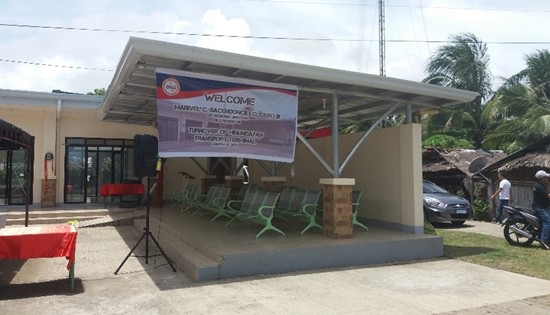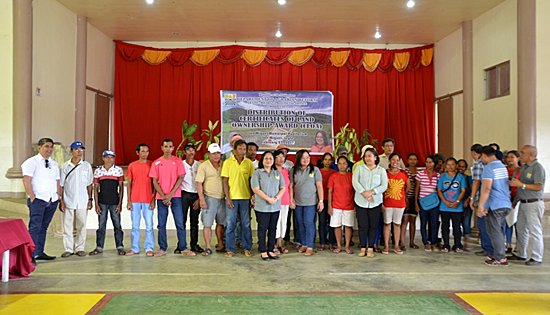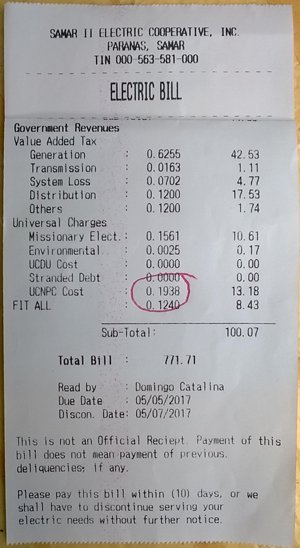Car Awards Group,
Inc. (CAGI) kick starts a packed 2017 season

Press Release
April 6, 2017
MANILA – To start the
ball rolling for the new 2017 season, the Car Awards Group, Inc. (CAGI)
held their momentous launch events at the Manila International Auto
Show (MIAS) at the World Trade Center in Pasay City last March 31,
2017.
With the continuous vision
of keeping the Filipino consumer informed of the best cars for sale in
the market, CAGI not only kick started the rigorous search for the
best vehicles contending in the Car of the Year Philippines (COTY-P)
and Truck of the Year Philippines (TOTY-P) awards, but also opened the
doors to the world of two-wheelers with the inauguration of the
Motorcycle of the Year Philippines (MOTY-P).
“By welcoming new blood into
our fold, the organization is expanding its reach, and tapping into
the expertise of the motorcycle media to adapt our successful model,”
said CAGI president Ronald de los Reyes during a speech.
"We believe that it's about
time that we also give due recognition to our fellow two-wheeled
contemporaries on the road," he added.
Special guests representing
various sectors of government graced the launching ceremonies, such as
Department of Tourism assistant secretary Inaki Jose and Department of
Public Works and Highways undersecretary Atty. Karen Jimeno.
"The state of our country's
infrastructure affects our car preferences,” Jimeno mentioned in her
speech as she related the event to current local issues.
Since 2004, CAGI prides
itself of holding annual test fests, where all vehicle entries go
through a strict process of classification and sorting, before they
are subjected to qualitative (consumer) and quantitative (performance)
testing. Qualitative testing uses predetermined consumer metrics like
the ride, fit, and feel, while quantitative testing uses GPS-based
hardware to measure handling, braking and acceleration. Each year,
winners for each category are announced, and from that winning pool
emerges the year’s COTY-P, TOTY-P and this time, the MOTY-P.
“We expect more than a 100
motor vehicles consisting of cars, pickups and motorcycles to be
tested this season,” de los Reyes shared.
Aside from the official
launch in MIAS, the usual Test Fest in September and October; and the
awards night in November, this year’s season will include various
dealer talks in April and May, test demonstrations in June and July,
and the television special in December – thus further adding more
excitement to the jam-packed season.
For the third straight year,
www.Carmudi.com.ph presents this endeavor while internationally
respected auditing firm KPMG is once again on-board as partner. The
latter will be in-charge of all the data handling during the testing
process, which consists of data gathering, tabulation, and up to the
final audit and release of the official results.
Car Awards Group, Inc. is
comprised of members from the following media entities: Business
Mirror, Cebu Daily News, Daily Tribune, Malaya Business Insight,
Manila Bulletin, Philippine Daily Inquirer, Philippine Star, The
Manila Times, Bulgar, Abante Tonite, Mindanao Daily News, AQ Magazine,
Autocar.Ph, C! Magazine, Motorcycle Magazine, Power Wheels Magazine,
Top Gear Philippines, 2nerMagazine.com, Carmudi Magazine, Iginition.ph,
Interaksyon.com, Kotse.com, ManilaSpeak.com, MotionCars.com, Ride and
Drive Phils., Speed by MP Turbo, SprocketPh.com, TessDrive.com,
TimeAttackManila.com, Yugatech.com, DZMM, Inside Motoring on DZRJ 810
AM, Mellow 94.7, Motoring sa DZME, The Motoring Page on Mellow 94.7
FM, ABS-CBN, Auto Review, Spotlight TV.
DTI cuts
bureaucratic red tape on SRP setting
By DTI-CPG
April 6, 2017
MAKATI CITY –
Department of Trade and Industry (DTI) Secretary Ramon Lopez recently
(April 5) convened the National Price Coordinating Council (NPCC) to
closely evaluate the price and supply situation of basic necessities
and prime commodities during the first quarter of this year.
During the meeting, DTI
discussed its stand to deregulate the setting of Suggested Retail
Prices (SRP) on certain commodities to reduce bureaucratic red tape in
the system, while it continues to closely monitor the movement of
prices of products and ensure fair trade in the market.
DTI clarified that there
will still be SRPs on manufactured products but it can be set by the
companies themselves for guidance of the supermarkets and consumers.
These SRPs will still be closely monitored by DTI.
“We can let the companies
set the SRPs because products with competitive market players and
several brands, both locally produced and imported, have their
‘self-correcting mechanism’ on their prices,” said Sec. Lopez.
“In fact, prices of brands
and commodities that do not pass the approval system of DTI before
remained stable and some are even declining because of competition” he
added.
Sec. Lopez believes that
liberalizing price setting would help spur competition among
industries and would further improve their product quality.
“DTI would prioritize the
protection of the consumers by ensuring that industries have a
competitive business environment that allows entry of brands and
players in the market and give the consumers the widest range of
choice,” the trade chief said.
“We will continue to closely
monitor the prices of basic goods, and will have the oversight
function to enforce regulation of irregular price increases,” added
Sec. Lopez, ensuring commitment to consumer protection.
The NPCC will work with DTI
on analyzing the industry structure and streamlining the process of
price regulation to create a more efficient and effective system for
both manufacturers and consumers. DTI would also be working with the
Philippine Competition Commission (PCC) to continuously review the
industries' structure, and the play of competitive forces, that will
ensure optimum competition and best options for quality
products/services and affordable price points for consumers.
Samar I proposes
P302.932 million tourism projects
By LEVIRESA GETIGAN-BARNIZO
April 5, 2017
CALBAYOG CITY – The
Department of Public Works and Highways (DPWH) Samar First District
Engineering Office (SFDEO) proposes a total amount of P302,932,000.000
for four (4) tourism projects under its jurisdiction for the year 2018
under the DPWH-DOT Convergence program.
A project cost amounting to
P200 Million is proposed for the Improvement/Construction of 5.660
kilometers Portland Cement Concrete Pavement (PCCP) with 6.1 meters
width and 230 mm. thickness of Sto. Niño Circumferential Road, Sto.
Niño, Samar.
Some P30 Million is proposed
for the concreting of 900.0 linear meters PCCP with 3.0 meters half
lane width and 230 mm thickness, Access Road from Brgy. Rizal II
leading to Mapaso Hotspring, Oquendo District, Calbayog City, Samar.
Meanwhile, some P50 Million, is proposed for the concreting of 1450.0
linear meters PCCP with 3.0 meters half lane width and 230 mm
thickness of the Access Road from Brgy. Lungsob leading to Guinogoan
Cave, Calbayog City, Samar.
The proposed project cost
for the concreting of 1000 linear meters road with 6.00 meters width
and 230 mm thickness is P22.932 million of the Access Road from Brgy.
Caglanipao Sur leading to Busay Falls, Brgy. Caglanipao, Tinambacan
District, Calbayog City, Samar.
SFDEO submitted the
pertinent documents for the possible approval of the proposed projects
by the Department of Tourism. Approval of the said proposed projects
signifies increase of domestic and foreign tourists visiting the said
tourist attractions in Calbayog and the booming of economic activities
of the locals in the concerned villages.
DILG turns over
transport terminal to Hinundayan

By DIANNE O. DUARTE
April 4, 2017
HINUNDAYAN, Southern
Leyte – The Department of the Interior and Local Government (DILG)
turned over on March 29, 2017 the completed P3M-worth Transport
Terminal to the Municipal Government of Hinundayan.
The Turn-Over Ceremony was
kicked off with a blessing officiated by Rev. Fr. Ricarte Olayvar,
followed by the ceremonial ribbon cutting. Gracing the event was the
DILG RO 8’s PDMU Head, Engr. Ofelia M. Pido, along with DILG Southern
Leyte OIC-Provincial Director, Jesus P. Naquila, and Cluster Head,
Geraldine C. Maquelabit.
Funded thru DILG’s Bottom
Up-Budgeting (BUB) Program, the multi-million-peso project was also
made possible thru the commendable efforts of MLGOO Edgar S. Bayano
and under the dynamic leadership of Mayor Alfredo M. Lagumbay and Vice
Mayor Elisa C. Cadingan. In his speech, PD Jesus P. Naquila,
encouraged the CSOs to continue their active participation in the
monitoring of all government projects, not just the DILG’s. Meanwhile,
Engr. Pido expressed her great joy as well as her high hopes for the
completed project to spur more economic activities in Hinundayan.
Mayor Lagumbay upon
receiving the symbolic key expressed his deepest gratitude to all who
became instrumental to the completion of the project, and with great
sense of pride asserted that the completed project is a standing proof
that Hinundayan always puts to good works anything they’re given with,
and given the necessary assistance, “Hinundayan can!”
In attendance also were the
local functionaries of LGU Hinundayan as well as the active Civil
Society Organizations.
BIR owes each 600K
workers P9,000 blood money in 2008 SC tax refund case
By ALU-TUCP
April 2, 2017
QUEZON CITY – The
Bureau of Internal Revenue (BIR) owes each 600,000 minimum-waged
workers nationwide with an estimated P9,000 “blood money” from the tax
they collected for six months in 2008 amid a law exempting the workers
from withholding tax, labor group Associated Labor Unions-Trade Union
Congress of the Philippines (ALU-TUCP) said yesterday.
In its decision released on
February this year, the Supreme Court said minimum wage earners (MWEs)
should not taxed because they are exempted from doing so by Republic
Act 9502 – the law giving exemption to minimum waged workers from
monthly salary tax deductions.
The law became effective
June 17, 2008. However, the BIR issued Revenue Regulation 10-2008 and
only exempted MWEs six months later. The TUCP filed a contesting
petition at the SC nullifying the regulation as contrary to the law.
It is estimated the BIR
collected an average P792 a month for six months from each MWEs at
that time but the BIR should also be charged with 12% legal interest
fees for nine years, said Alan Tanjusay, spokesperson of ALU-TUCP.
“This is a subtle form of
injustice done by BIR for minimum-waged workers who depended on their
daily pay to make both ends meet. The amount of money the BIR
collected is blood money that could have been spent to buy food, pay
for tuition fees and purchase medicines,” Tanjusay said.
He said the ALU-TUCP is
urging the SC to hasten the specific implementing rules and
regulations that lay the mechanism for the actual refund.
“We suggest the cash refund
should be coursed through the employers if the employers are still
existing. If the company has shut down, we suggest the refund should
be disbursed through BIR regional offices,” Tanjusay said.
Refund by means of tax
credit is more problematic because most of minimum-waged earners at
that may have become unemployed or remained at the same minimum waged
level and so they are still tax-exempt, Tanjusay added.
|

Some
of the 84 agrarian reform beneficiaries pose, after their
ceremonial installation to their awarded lot under the
Comprehensive Agrarian Reform Program, with officials from the
Department of Agrarian Reform, Registry of Deeds and local
government unit together with representatives from the RIGHTS
Network and CARITAS. (Jose Alsmith L. Soria) |
DAR installs 84
beneficiaries
By JOSE ALSMITH L. SORIA
March 31, 2017
SAN MIGUEL, Leyte –
After over 20 years of waiting the 84 agrarian reform beneficiaries (ARBs)
here were finally installed by the Department of Agrarian Reform (DAR)
to their awarded lots within the Leyte Sab-a Basin Development
Authority.
In 1991, DAR handed a
collective certificate of landownership award (CLOA) numbered OC-4,
covering Lot 1578 in Barangay Capilihan to the beneficiaries under the
Comprehensive Agrarian Reform Program (CARP) but failed to install
them due to harassment by other farmers in the area.
Leyte Provincial Agrarian
Reform Program Officer Renato Badilla who issued the writ of
installation disclosed during the ceremonial installation that the
area measures 207 hectares.
In September last year, DAR
conducted the subdivision survey and revalidation of ARBs to check if
those mentioned in the CLOA are still around.
Remegia Labaclado, one of
the ARBs installed, wished in her message that the individual CLOAs be
released to them soon. She also said that they will immediately till
the land and make it productive after having been deprived for two
decades.
Meanwhile, Regional Director
Sheila Enciso directed DAR’s Program Beneficiaries Development
Division to discuss with the ARBs appropriate projects that would help
increase the farmer’s production and income and submit immediately the
project proposals to the central office for funding.
Meanwhile, Badilla likewise
acknowledged the partnership that has been established between DAR and
the Rights, the non-government organization assisting these farmers,
which resulted to their installation.
NPA attacks CAFGU
detachment, wounding 4 civilians
By DPAO, 8ID PA
March 31, 2017
CAMP LUKBAN, Catbalogan
City – On March 30, 2017, a day after the 48th NPA Founding
Anniversary, a series of attacks was perpetrated by communist
terrorists in different military detachments as part of their
offensive operation against government forces. Among these is the NPA
attack on the Geparayan CAA Detachment located at Brgy. Geparayan,
Silvino Lobos, Northern Samar.
More or less 150 NPAs
attacked the detachment which is surrounded by the community of the
Brgy. Geparayan which resulted to the casualty of four civilians,
namely, Genalyn C. Tulin, 31 y/o; Jocelyn Tulin, 12 y/o; Danica Tulin,
10 y/o and Ruby Jane Tulin, 2 y/o, burning of the detachment, and the
loss of one (1) M60; one (1) R4A3; four (4) carbine rifles; five (5)
garand rifles and one (1) Harris handheld radio.
The atrocity proved once
again that the NPA is no longer concern for the well-being of
civilians who are considered non-combatants and a clear manifestation
that the communist terrorists do not abide to the Human Rights,
International Humanitarian Law and Rule of Law.
To achieve lasting peace and
development, your Army in Eastern Visayas is calling the stakeholders
and the general public to support the government forces in fighting
these communist terrorists. Everyone is highly encouraged to report to
any nearest military units any NPA sightings in their area.
Despite this unfortunate
incident, rest assured that the 8ID will continuously conduct massive
combat operation to deter the evil plans of the NPA and other lawless
elements against our peace-loving people in Eastern Visayas.
'Killing us softly'
says POWER of ERC's decision to allow PSALM to continue collecting
P53.8B in stranded contract costs from consumers
Press Release
March 30, 2017
QUEZON CITY –
Consumer group People Opposed to unWarranted Electricity Rates (POWER)
today slammed the Energy Regulatory Commission (ERC) for allowing the
Power Sector Assets and Liabilities Management Corporation (PSALM) to
continue charging electricity consumers with a 19 centavo/kWh
universal charge to pay for its stranded contract costs.
 In an order dated March 6
but released only on March 27, the ERC indefinitely extended PSALM's
P0.1938/kWh universal charge originally allowed from April 2013 to
February 2017. The charge was supposed to cover PSALM's stranded
contract costs of P53.851 billion incurred from 2007-2010. But the ERC
said PSALM was only able to collect P48 billion by February 2017, thus
it should be allowed to charge consumers P5.5 billion more in the
coming months.
In an order dated March 6
but released only on March 27, the ERC indefinitely extended PSALM's
P0.1938/kWh universal charge originally allowed from April 2013 to
February 2017. The charge was supposed to cover PSALM's stranded
contract costs of P53.851 billion incurred from 2007-2010. But the ERC
said PSALM was only able to collect P48 billion by February 2017, thus
it should be allowed to charge consumers P5.5 billion more in the
coming months.
"The amount might seem
small, but they have been charging this to millions of consumers for
the last four years, translating to billions already. With ERC's
action, consumers will most likely be paying even more for the next
nine years. They're killing us softly," said POWER Convenor and former
Bayan Muna Rep. Teddy Casiño.
PSALM's stranded costs are
due to the onerous "take or pay" provisions in NAPOCOR's contracts
with Independent Power Producers (IPPs) which allowed IPPs to charge
NAPOCOR even for unused power. It is similar to the much-hated "power
purchase adjustment (PPA)" that was abolished under the Arroyo
administration. Most of the contracts were signed during the Ramos
administration but was continued by succeeding governments, resulting
in huge stranded contract costs.
Due to strong opposition to
the passing on of such costs to consumers, it was only in 2013 that
PSALM was able to get ERC approval. But said charge was supposed to
have ended last February.
By extending the 19-centavo
universal charge, POWER says the ERC is setting a bad precedent for
PSALM to charge additional stranded contract costs covering the years
after 2010, including stranded debts estimated at P245 billion. At
present, PSALM has pending applications in the ERC to pass on P35
billion in stranded debts and P70.12 billion in stranded contract
costs to electricity consumers. This will be reflected in monthly
power bills for the next nine years, at least.
“Electricity consumers are
being made to suffer the consequences of NAPOCOR and PSALM's bad
decisions. The original debt to be passed on to consumers was only
P255 billion in 2001 as mandated by the Electric Power Industry Reform
Act (EPIRA). This was supposed to be covered by the sale of NAPOCOR's
assets. But the reverse happened and PSALM was left with an even
bigger debt plus stranded contract costs. Why should our people suffer
for PSALM's incompetence? This is unjust and cruel, considering we
already have the highest power rates in Asia!" said Casiño.
Last January, Energy
Secretary Alfonso Cusi announced that the Malampaya Fund would be used
instead to cover PSALM's stranded debts and stranded contract costs so
as not to burden consumers. "So why is the ERC now allowing PSALM to
continue charging consumers for something that the government already
said it would shoulder?" asked Casiño.
Casiño called on Congress to
investigate ERC's actions and said POWER was studying options to file
with ERC or the Courts to put a stop to PSALM's charging of its
stranded debts and costs to consumers.
Empowering jail
paralegals in the decongestion effort
By ICRC
March 30, 2017
MANILA – The Bureau
of Jail Management and Penology (BJMP), with the support of the
International Committee of the Red Cross (ICRC), launched an
electronic learning platform as part of its jail decongestion
initiatives.
The Electronic Paralegal
Learning Module (EPLM) is an interactive offline learning platform
containing basic legal modules and resources. It aims to support jail
paralegals’ continuing education and give them an electronic resource
center for timely interventions to detainees. The EPLM is distributed
in USB sticks that users can easily plug and play on their computers
even without internet connection.
The EPLM will benefit more
than 400 BJMP paralegal officers nationwide. This will help them
monitor the cases of detainees undergoing trial, and coordinate with
criminal justice stakeholders such as public attorneys, law
enforcement, court staff and judges, among others.
“We developed this learning
platform based on the challenges faced by our paralegals, which
include lack of training and varying availability of resource
materials in jails. By ensuring that our paralegals have all the
necessary tools and resources, we will be able to capacitate them so
they can help us process the inmates’ cases and decongest our jails,”
said Jail Director Serafin Barretto Jr., BJMP chief.
The learning platform
ensures paralegals in all BJMP jails access to topics such as criminal
procedure, modes of early release, time allowances, alternative
dispute resolution, rights of the accused, international standards,
and negotiation with justice stakeholders.
In addition, the EPLM
provides paralegals access to national laws, BJMP manuals, paralegal
manuals and examples of written interventions that would help them
facilitate timely and meaningful assistance to detainees.
The EPLM was pilot tested in
15 BJMP jails in Regions 3 and 4-A, involving 22 paralegals. It will
be available in all BJMP jails nationwide in April 2017.
The ICRC, a neutral,
impartial and independent humanitarian organization, has been visiting
places of detention in the Philippines after World War II. It supports
the BJMP in its efforts to improve the conditions of detention and the
treatment of detainees.
For the past 10 years, the
ICRC has been assisting the BJMP in projects aimed at providing relief
to the endemic national jail congestion rate averaging at 555% as of
February 2017. Jail paralegals are essential to the BJMP’s initiatives
to ease the congestion of jails in the country.